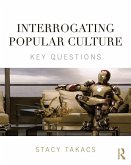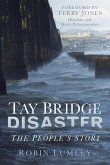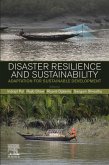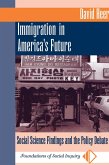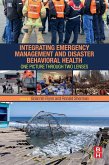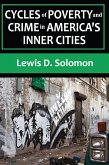Are we inside the era of disasters or are we merely inundated by mediated accounts of events categorized as catastrophic? America's Disaster Culture offers answers to this question and a critical theory surrounding the culture of "natural" disasters in American consumerism, literature, media, film, and popular culture.
In a hyper-mediated global culture, disaster events reach us with great speed and minute detail, and Americans begin forming, interpreting, and historicizing catastrophes simultaneously with fellow citizens and people worldwide. America's Disaster Culture is not policy, management, or relief oriented. It offers an analytical framework for the cultural production and representation of disasters, catastrophes, and apocalypses in American culture. It focuses on filling a need for critical analysis centered upon the omnipresence of real and imagined disasters, epidemics, and apocalypses in American culture. However, it also observes events, such as the Dust Bowl, Hurricane Katrina, and 9/11, that are re-framed and re-historicized as "natural" disasters by contemporary media and pop culture. Therefore, America's Disaster Culture theorizes the very parameters of classifying any event as a "natural" disaster, addresses the biases involved in a catastrophic event's public narrative, and analyzes American culture's consumption of a disastrous event. Looking toward the future, what are the hypothetical and actual threats to disaster culture? Or, are we oblivious that we are currently living in a post-apocalyptic landscape?
In a hyper-mediated global culture, disaster events reach us with great speed and minute detail, and Americans begin forming, interpreting, and historicizing catastrophes simultaneously with fellow citizens and people worldwide. America's Disaster Culture is not policy, management, or relief oriented. It offers an analytical framework for the cultural production and representation of disasters, catastrophes, and apocalypses in American culture. It focuses on filling a need for critical analysis centered upon the omnipresence of real and imagined disasters, epidemics, and apocalypses in American culture. However, it also observes events, such as the Dust Bowl, Hurricane Katrina, and 9/11, that are re-framed and re-historicized as "natural" disasters by contemporary media and pop culture. Therefore, America's Disaster Culture theorizes the very parameters of classifying any event as a "natural" disaster, addresses the biases involved in a catastrophic event's public narrative, and analyzes American culture's consumption of a disastrous event. Looking toward the future, what are the hypothetical and actual threats to disaster culture? Or, are we oblivious that we are currently living in a post-apocalyptic landscape?




